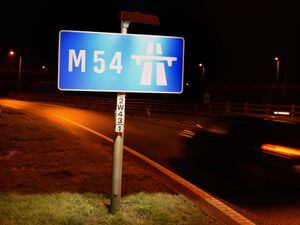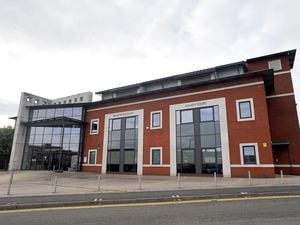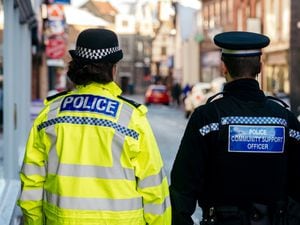West Midlands' Mr Politics bids farewell to BBC after 45 years
From Thatcher to Johnson, Patrick Burns has gone face-to-face with them all. Now he's preparing to take his final bow.
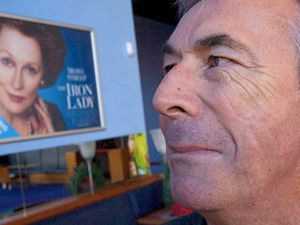
There’s a theory that goes something like this: If we spend enough time around someone, we become their mirror. We adopt mannerisms and ape behaviour. Our body language and diction fall in. Over time, we reimagine ourselves in the image of our peers.
It’s no surprise, therefore, that after spending a lifetime in politics, the BBC’s West Midlands Political Editor, Patrick Burns, might easily be confused for an MP.
Ask him a question and three minutes later you’ll have been delighted by his charming discourse while simultaneously wondering: “is he actually going to answer the question?”.
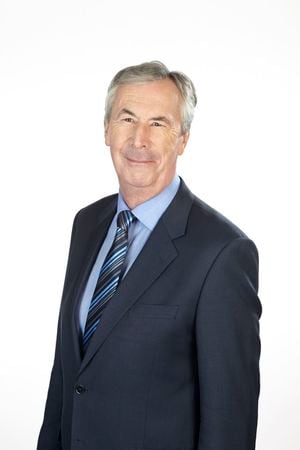
So, for instance, an enquiry about which prime minister he found most impressive of the seven he interviewed elicits a lengthy anecdote about an interview with Mrs Thatcher, rather than an opinion about who impressed him. Ask the same question a second time and Patrick will talk about another PM, rather than nailing his colours to the mast. After a lengthy interview, I had an inkling of which party he might favour in the ballot box, but nothing concrete.
Perhaps his elusiveness is what has made him so durable. Patrick survived the white heat of Westminster by being impartial and fair-minded, knowledgeable and measured. Though a dry sense of humour permeates his narrative, the BBC’s Westminster man favours truth to opinion. His worst nightmare, you imagine, would be to find himself at the centre of a story.
But after a lifetime telling the stories of others, it is finally time to tell his own. Burns can step out of the shadows as he looks back on a remarkable career and looks forward to a quieter life.
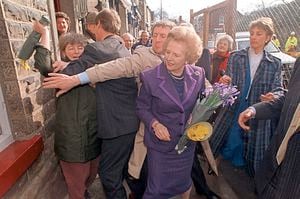
Burns is know to millions across the region. For 45 years he has worked for the BBC, 22 of them as a presenter. Each Sunday, he entered homes across the region, presenting programmes that summarised political debate in the West Midlands. During an illustrious career, he worked with Jeremy Paxman, Gavin Esler, Nicholas Witchell and James Robbins while also producing and editing such programmes as Midlands Today and Crimewatch Midlands.
The 68-year-old signed-off from his final edition of Sunday Politics last December and this month will say a fond farewell to all duties.
“The truth is I’ve had a wonderfully varied and very happy BBC career. As I prepare to step aside from a career that I’ve enjoyed so much. I don’t think it owes me anything and I don’t think I owe it. It’s a good time for all concerned. It’s rounding off a wonderful time, working for an organisation I’ve admired and still do.”
From an early age, Patrick had an interest in politics, public affairs and journalism. He would write letters to the newspapers, even as a teenager. To his surprise, many were published and he kept a scrapbook of those cuttings.
Brilliant
As a student he read politics and modern history at Manchester University. He got involved in student journalism and also did a few bits and pieces for BBC Radio Manchester. “They ran a programme for Student Scene, I was a regularly contributor to that. Then it was my very good fortune that in the hall of residence was a man called John Waite, a regular presenter of BBC Radio 4 programmes, including Face the Facts and the Today Programme. We became firm friends and he wanted to get into the BBC. He became a role model to me.”
Waite presented an in-house student TV news programme, recorded every other Thursday afternoon. It was played on the TV sets in the student union buildings and Patrick became involved. One of his earliest scoops arose in the slipstream of a story about a block of flats collapsing in London because they made from defective cement. Patrick discovered that quite a few of the university buildings were made of the same type of cement and his story hit home, forcing the university to take remedial action.
Patrick became a BBC trainee. He joined in October 1975 as one of six new recruits at Broadcasting House, in London, and spent 16 months being trained up. He’d grown up in Birmingham and his history teacher was the one who turned his attentions to politics. He had been intending to do history at university but his teacher suggested he combine that with politics. He pointed out that Manchester had a joint honours course, which was an amalgam of history and modern history. “It was a very fortunate link with my chosen career.”
Patrick no longer remembers when he moved into political journalism. He recalls there was a vacancy under the brilliant John Cole, who became the BBC’s Political Editor from 1981 to 1992. Cole was widely regarded as the most recognisable and respected broadcast political journalist since World War II. Patrick got the job.
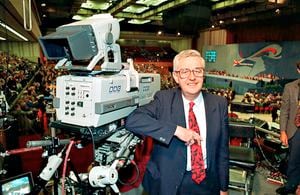
“John Cole was a brilliant boss. He wanted to open up the Westminster office to political correspondents. So that was a great moment to dust off my interest.
“He was so absolutely committed to getting the story out. We had the most tremendous respect and affection for him as a brilliant instinctive journalist. He was a very kind and likeable man. He gave me my big break back in 1985, the heyday of the Thatcher era.”
There had been portents of his career in his formative years. As a schoolboy, he had been on a trip to Westminster. As a trainee, he’d sat in the House of Commons and watched Harold Wilson duel with Margaret Thatcher, the recently-elected Opposition Leader. Their exchanges were sharp and Patrick was transfixed.
Patrick revelled in the buzz of hearing his work on screen. He remembers an occasion when Normal Fowler, the MP for Sutton Coldfield, introduced the opt-out scheme from State Pensions. It was a very dry, complicated subject and happened on Patrick’s second or third day in the office. He was dispatched to find out more and later than evening heard comments he had obtained on the Nine O’Clock News. “I was thrilled that it was my work.”
Procession
Patrick went on to interview seven prime ministers. “The most startling was Margaret Thatcher. By that stage, 1979, I was a news reporter in Belfast. One of the first regional visits she did was to Northern Ireland. Her procession came to a halt in the middle of Donegal Square and Margaret Thatcher plunged into the crowd, to the consternation of her security detail. So I jumped out of the press minibus and got myself into the crowd with her. The RUC was throwing a cordon of officers around her, effectively sealing in part of the crowd in with her and me.
“I managed to get as close as I could to her. My sound recording and the pictures were joined together as she made the point in no uncertain terms that she was the Prime Minister of Great Britain and Northern Ireland. It was a powerful statement.”
Though he prevaricates when asked to pick out the most impressive PM, he eventually chooses the inevitable pair: Thatcher and Blair, saying: “They were the two stand outs. I had strong experiences of the Conservative highwater mark and the Labour highwater mark under Blair. Mrs Thatcher was once met, never forgotten. She was seen by many as the woman who presided over the demise of iron, coal and steel and that deprivation has never really been repaired. So as powerful and impressive as she was, there’s that to her legacy too.
“Tony Blair did an enormous amount to modernise Britain and introduce progressive legislation. But just as Thatcher is vilified by some for the deprivation she caused, Blair has Iraq hanging around his neck. Both were hugely imposing and memorable figures.”
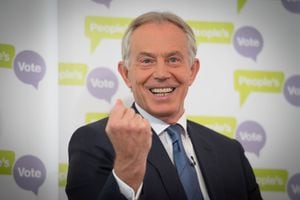
Patrick was on duty when Blair made his first visit having become Britain’s new Prime Minister, in 1997. The Labour leader went to Worcester, demonstrating how his party had been successful in its conquest of Middle England. “I interviewed him and we started with a soundcheck. I said: ‘So Prime Minister, tell me about yourself.’ And he came back with: ‘Oh, and I thought this was going to be an easy interview.’ There was something more meaningful in his put down.”
Patrick got along well with Blair’s successor, Gordon Brown, with whom he had spent time prior to his election to Prime Minister. Brown had visited Birmingham in 1996, while still in opposition, and Patrick was asked by the Labour Party to accompany him on his train journey back to London. It provided a great opportunity for a one-to-one, as the carriages blurred between Birmingham and Milton Keynes. “We sat and talked it through. He was a man of great principle and intellect.
“For all that he publicly had a rather dour Scottish granite image, he had a tremendous sense of humour. I remember a visit when he was chancellor to the Smethwick Enterprise Project, near Rolfe Street Station. I’d been following this project and he and I knew each other and we were joshing each other. I would josh him about his love of Raith Rovers and he gave it back for my love of Birmingham City. When the camera came into the room, the humour evaporated and the grey image took over. It’s a pity the public didn’t see that.”
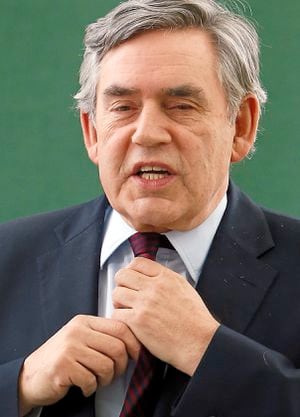
The present Prime Minister, in contrast, could not be more different.
“I was at a dinner two years ago and sat next to Rachel Johnson, Boris’s sister. She was campaigning for Britain to Remain in the EU, so was no fan of Boris’s politics. But she said she was devoted to him as her brother and said five minutes in his company was enough to uplift anyone. I met Boris briefly during the Referendum campaign, where he’d been to a company in Stafford. He was more interested in showing me a metal ingot than talking about the interview. He’s got great personal warmth and magnetism. The story of the last General Election, for good or ill, was that he persuaded people in the Black Country that his Conservative party offered a better prospect than Corbyn’s Labour Party.
“I’ve spoken to Sir Keir Starmer. He is open eyed about the challenge labour face to regain that lost confidence in areas like Wolverhampton, Dudley, West Bromwich and so on.”
Patrick has been a truth teller throughout his career, trying to uphold the principles of CP Scott, the legendary editor of The Guardian newspaper, who wrote an essay 99 years ago, marking the centenary of the inception of the Guardian. In it, he said comment was free but facts were sacred.
He is concerned that in recent time there has been a drift away from facts.
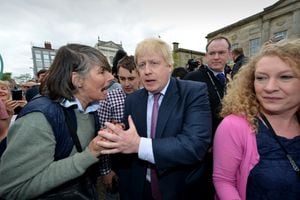
“I would see myself as an expert storyteller. I think the BBC has some wonderful storytellers and I’ve been honoured to work alongside some of them. At the same time my skin creeps when the storyteller becomes the story themselves.”
There have been huge changes during his years at the coal face, not least the rise of social media. Patrick is concerned that it has frequently forced people to condense arguments too much, so that debates become polarised and social media feeds become an echo chamber.
“Some colleagues have fallen into the trap of overstating their own position on stories. My style has always been to animate the story. I think people want probing questions and people being held to account. I think you have to be firm and fair and persistent. You have to put fairly the questions the viewers want asked. You cannot be a soft touch, but you have to try to get an outpouring of ideas from the politicians and avoid being a central figure in the drama. My role has been to be the viewers friend.”
He has gained considerable respect and admiration for some of the region’s biggest political beasts and lists Betty Boothroyd, the former West Bromwich West MP, as a leading light. The former entertainer who became the speaker of the House engendered great warmth. “I remember marvelling at the calm authority with which she oversaw the House of Commons. I thought she was an awe-inspiring figure and one of the best speakers in my lifetime. She was a commanding figure. She did it by putting herself at the service of the House of Commons.”
The Shropshire MP, Philip Dunne, who represents Ludlow, is another who Patrick has recognised as being more capable than most, saying the health minister made him understand just how difficult it is to meet the public’s expectations on the NHS without a bottomless pit of money.
Patrick’s career has come to an end with the emergence of Covid-19. It has been the biggest story in his 45 years.
He has marvelled at the way in which locals have come together to play a part.
He watched events in Stafford, where local authority workers delivered food to those on the front line, saying: “It showed local authorities were not waiting for a series of instructions from the Government, they were getting on with it.”
Time waits for no man and Patrick is looking forward to a lengthy retirement.
Though he has many friends in high places, he is looking forward to a quieter pace where he will no longer be at the cutting edge of politics.

